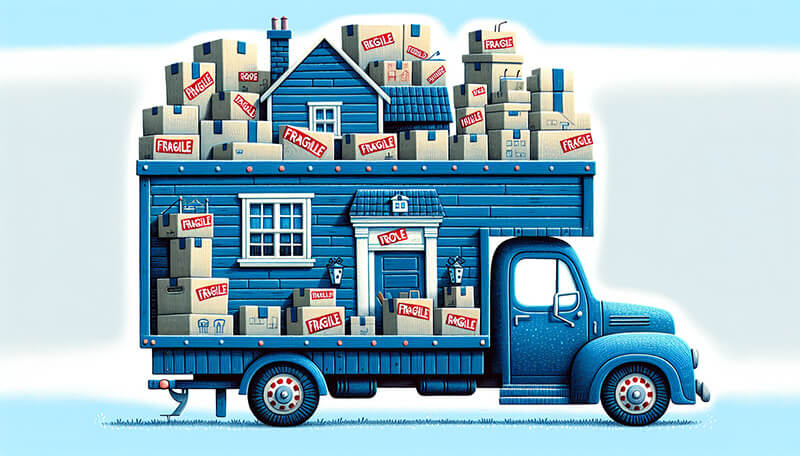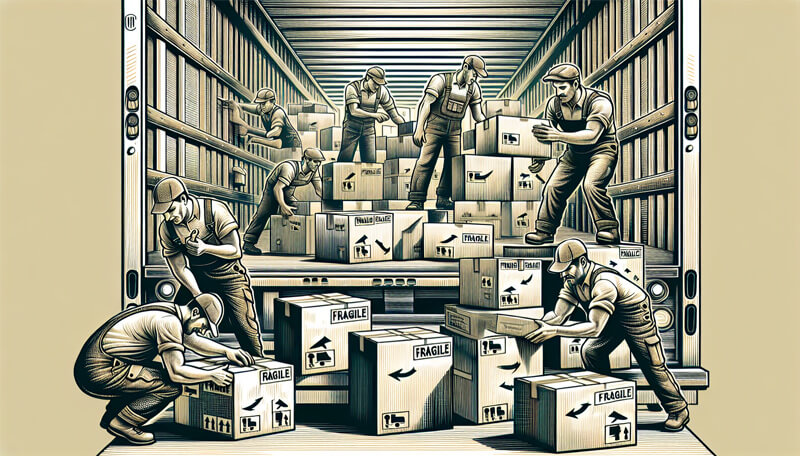- About
- Moving Services
- Antiques
- Art & Uniques
- Cross Country Moves
- Estate Moves
- Full Service Moves
- Long Distance Moves
- Los Angeles Moves
- Moves Within California
- Packing Crating Services
- Pianos
- Residential Moves
- Small Moves
- West Coast Moves
- Storage
- Freight / Shipping
- Tips & Tools
- Blog
- FAQ
- Movers Glossary
- Moving Brochure
- Moving Checklist
- Moving Tips
- Rights and Responsibilities
- Ready to Move Brochure
- Reviews
- Discounts
- Get Quote
- Now Hiring
- Contact
- Accessibility

We have earned the service industry’s coveted Angie’s List Super Service Award, reflecting an exemplary year of service provided to members of the local services marketplace and consumer review site in 2016.
Understanding Moving Costs

Multiple factors affect the process of moving and cause the costs to fluctuate considerably. The distance over which you are moving is one major factor that affects pricing. For instance, local moves within the same city or immediate area often have a different cost structure than long-distance relocations, which cover much larger distances and frequently cross state lines.
Aspects such as the weight and size of your possessions impact the total cost of your move—the heavier and more sizable they are, the higher the associated expense will be. If you require additional services like packing assistance, storage solutions, or special handling for unique items, these, too, will contribute extra charges. Gaining an understanding of these variables is essential in forecasting and controlling your expenses throughout your relocation endeavor effectively.
Local vs. Long-Distance Moves
Typically, local moves are confined to the same city or within state lines, and the cost for these services is calculated on an hourly basis, taking into account how long the move takes and the number of movers required. Moving locally in one’s own city could vary in price from about $200 up to $1,500 depending on factors such as move size and duration.
In contrast, relocating over a longer distance, which often means out-of-state, involves different pricing dynamics. The costs associated with these relocations depend largely on two variables: the overall weight being moved and how far it needs to go. For instance, you might expect that transporting your belongings from a single-bedroom apartment across the states can set you back anywhere between $1,123 to upwards of $14,107 subject to individual details of each relocation scenario. Opting for professional movers when dealing with long-distance hauls can significantly reduce stress levels while also ensuring safety during transit for your items.
Understanding these variances helps streamline planning processes and financial readiness by mitigating unexpected expenses down the line. Whether your transition is local or crosses vast distances, grasping anticipated costs remains integral throughout this journey.
Weight and Volume

The cost of moving is heavily influenced by both the weight and size of your belongings. The greater the amount and weight, the more you can expect to pay—this holds especially true for long-distance relocations where costs are typically based on weight.
To cut down on total moving expenses, consider:
- Purging items that have outlived their usefulness or no longer serve a purpose
- Parting with items still in decent shape through sales or donations
- Smart packing practices to optimize spatial usage while keeping weight low
Minimizing your load will directly impact and reduce your overall relocation costs.
A thorough decluttering before relocating can effectively trim down both dimensions and heft. Discarding, selling off, or donating excess possessions can meaningfully decrease what’s being moved, thus reducing transportation costs. Not only does this approach facilitate financial savings, but it also streamlines unpacking at your new residence significantly easier.
Additional Services
The total cost of your move may increase due to various supplementary services, for example:
- Services related to packing usually encompass the supply of essential materials such as boxes and bubble wrap. This inclusion can markedly elevate the aggregate expense of moving.
- The provision of storage options should there be a need to keep items secured either before or after relocating.
- Insurance offerings are designed to safeguard your belongings throughout transit.
- Expert handling provisions tailored for delicate or high-value possessions.
It is vital that you confirm any ancillary charges associated with these services and potential damages in advance.
If transitioning directly into your new home isn’t feasible, you must consider storage solutions. For example, securing a space in a storage unit will incur additional costs. Sterling Van Lines specializes in offering careful treatment when managing valuable or fragile goods — highlighting their commitment to excellence. By recognizing and preparing for these extra services early on, you are better equipped to oversee and predict the comprehensive expenses tied up with your move.
Calculating Your Moving Costs

Calculating the precise cost of your move is essential for efficient budget management and strategic preparation. The costs associated with moving can differ greatly, influenced by elements like your property’s size, the journey length to your new home, and any additional services you might opt for. Speaking, a local relocation will set you back about $1,250 on average. Meanwhile, relocating over a long distance — say 1,000 miles away involving a residence with two to three bedrooms — tends to have an average price tag of around $4,890.
To get a grip on these varying expenses:
- Opting for full service moves means that professional movers will manage almost every aspect of your transition. This convenience comes at a higher financial premium compared to doing it yourself.
- More hands-on approaches, such as renting trucks or utilizing moving containers, typically result in lower monetary outlay but require more physical work from those relocating.
- Worth noting is that timing plays its part: peak season falls in the summer months when prices climb due to increased mover activity during this period.
Using a Moving Cost Calculator
Calculators designed to estimate moving costs are invaluable for predicting your relocation expenses. These tools usually ask you to provide specifics of your move, including the origin and destination locations, the size of your residence, and any extra services that may be required. With these variables considered, they offer a finer approximation of what you might spend on moving, which aids in creating an effective budget plan and prevents unforeseen costs.
Taking into account elements such as labor charges, the weight of personal items, and travel distance helps these calculators generate more detailed expense estimates. They can present a cost bracket that is useful when setting aside funds for relocation expenditures, making them essential instruments for those preparing for a move.
Example Calculation: 1-Bedroom Apartment Cross-Country
To demonstrate the process of estimating moving expenses, consider relocating a one-bedroom apartment across the country. The costs for such a move can range from $1,123 to $14,107 based on various conditions and factors. For transporting a modestly sized one-bedroom apartment, you might expect to spend an average sum that falls between $1,050 and $3,500.
Included in this estimate are several charges like renting equipment necessary for the move—dollies for transportation ease, stretch wrap for securing items during transit and furniture pads for protection against damage. Considering that a typical one-bedroom apartment has approximately 2,000 pounds of belongings contributes significantly to influencing total relocation expenditures.
This hypothetical example offers valuable insight into prospective financial requirements associated with moves like these enabling effective preparation and budgetary allotments.
Hidden Fees to Watch Out For
Unexpected fees can greatly influence your total moving expenses, and they may surprise you if you haven’t anticipated them. Charges that often fall under this category include extra costs for weekend moves, dealing with staircases, as well as extended carrying charges when there is a considerable distance between the truck and your residence.
Additional expenditures to consider when hiring a moving truck include:
- Materials required for packing
- Insurance specific to the move
- Coverage options for the rental truck
- Accommodations like hotels during transit
- Services for towing vehicles
- Additional fuel charges
- Valuation coverage
These expenses tend to accumulate quickly. Hence it’s crucial to integrate them into your financial planning before executing your relocation.
Being mindful of these likely additional costs is key in accurately estimating and managing what you spend on relocating.
DIY Moving vs. Hiring Professional Movers

Opting for a DIY move versus engaging professional movers will have a considerable impact on your moving journey, including the expenses incurred. Managing the moving process yourself can help reduce costs and give you full oversight. However, it requires significant effort and may take up much of your time. Conversely, employing the services of professional movers brings ease through their proficiency while lessening your physical workload. Yet, typically, this option is more expensive.
Understanding both methods’ pros and cons enables you to make an educated decision that suits your financial constraints and personal requirements. It’s crucial to be aware of what each path entails before deciding whether to carry out the move independently or seek assistance from experts in the field.
Cost Comparison
When comparing the costs, opting for a DIY move can significantly reduce expenses compared to employing professional movers. Here’s a breakdown of potential savings based on different scenarios.
- For a DIY local relocation, truck rental prices range from $120 to $200.
- Engaging in a DIY long-distance trek may cost the moving truck between $1,500 and $2,300.
- On average, renting a moving truck for an extensive 3,000-mile journey lands at about $4,194.
- Utilizing moving containers is estimated at approximately $3,238.
- In contrast, hiring professionals typically comes with a price tag of around $9,061.
Self-service through renting and driving your own truck could lead to substantial savings—potentially up to $1,000 on moves within your locality or even upwards of nearly half ($5,000) less than what you’d pay traditional movers for a jaunt across the country. However, it must be noted that fuel charges may inflate overall spending, especially during those stretched-out hauls between states. Meanwhile, containers serve as a compromise option offering both monetary viability and hands-on effort required part mover(s).
Pros and Cons
The flexibility to dictate your own timeline and pace, including choosing the delivery date, is a considerable advantage of self-managing your moving process. You have complete command over each step, from packing through loading and unloading. This approach demands substantial physical effort and planning time.
While it may come at a higher price point, enlisting professional movers offers ease by reducing the physical burden. They inject skill and expediency into the move, securing careful handling of your possessions during transit. Despite these benefits, though, their schedules might not always coincide with your desired timeframe for moving.
When to Hire Movers
Engaging professional movers is especially advantageous for intricate relocations that include bulky, delicate, or high-value possessions. When pressed for time and needing to meet a strict deadline, professional movers are instrumental in facilitating a prompt and organized transition.
For those embarking on long-distance moves, the expertise of these professionals offers reassurance that your belongings will be conveyed with utmost care and security. It’s important to recognize the appropriate moment to enlist the services of movers to strike an optimal balance between cost-effectiveness, ease of move, and safeguarding your items.
Cost-Saving Tips for Moving

Many people prioritize saving money when it comes to the costs associated with the moving process. To trim expenses while ensuring a smooth transition, you can adopt several methods ranging from acquiring economical packing materials to planning your move for optimal timing—all aimed at reducing overall expenditures.
Within this discussion, we’ll delve into actionable strategies designed to help conserve funds throughout the relocation journey. By learning how to pack items efficiently, selecting an advantageous date for relocating, and purging unnecessary items before the big day arrives, you’re able to extend your financial resources and make the entire process of moving more cost-effective.
Packing Supplies
Though packing supplies can rapidly accumulate, numerous strategies can help save money in this regard. Buying packing boxes in bulk can be more cost-effective than purchasing them individually. Additionally, sourcing free boxes from local stores or online marketplaces can significantly reduce the cost of packing supplies. Using seal boxes for added protection can also be a smart investment in the long run.
Consider renting plastic crates instead of buying cardboard boxes to reduce waste and avoid dealing with used boxes. Using towels, linens, and clothing to wrap fragile items can also save money on bubble wrap and packing paper. Additionally, using a plastic bag to contain smaller items and trash bags for disposing of any waste can help you save on packing materials and keep your moving costs in check.
Timing Your Move
Scheduling your relocation during the off-peak seasons can lead to substantial savings when it comes to hiring professional moving companies. Opting for weekdays over weekends for your move may also result in reduced rates from these service providers.
If you organize your move for mid-month rather than at the start or end of the month, which are typically busier times, you could encounter more affordable pricing options. By carefully planning when you relocate, there’s an opportunity to leverage less busy periods and thus save on the overall costs incurred from using movers’ services.
Decluttering Before the Move
Reducing expenses when moving to a new house can be achieved by eliminating clutter in advance. Creating a decluttering schedule enhances the effectiveness of this process. By discarding items that are not essential, you will have less to box up, transport, and arrange at your destination, ultimately conserving both time and financial resources.
Organizing a garage sale prior to relocating enables you to:
- Dispose of superfluous belongings
- Accumulate additional funds
- Diminish the bulkiness and heaviness of your move
- Initiate life in your new dwelling with merely indispensable possessions.
Sterling Van Lines: Your Moving Partner
Sterling Van Lines excels in:
- Managing modest relocations
- Transporting fine antiques
- Secure piano moves
- Coordinating estate relocations
- Expertise in packing and crating
Esteemed for their reliability, Sterling Van Lines has garnered 30 years of industry expertise. They focus on tailoring services to cater to individual client requirements, ensuring a seamless and stress-free relocation experience. Whether your move is within the local vicinity or across the nation, Sterling Van Lines delivers superior care for the transportation of your possessions.
Their recognition with an Angie’s List Super Service Award and affiliations with multiple moving networks affirm their dedication to excellence and consumer satisfaction. Trust in Sterling’s proficiency when relocating precious and sensitive items. They stand as a trusted resource throughout your transition process.
Small Moves Specialists
Sterling Van Lines excels in the management of small-scale relocations, specifically designed for loads weighing up to 2,000 pounds or roughly akin to one and a half rooms worth of furnishings. They possess the expertise required for minimal moves that might include transporting a mere three furniture items along with multiple boxes across long distances.
With competitive rates starting at thresholds as low as 400 pounds, Sterling Van Lines presents an economical choice for individuals dealing with modest consignments. The company provides its specialized services locally, across the nation, and internationally catering not only to residential customers but also accommodating business and industrial clients in managing their diminutive relocation needs.
Moving Insurance
Moving insurance is a critical component during the relocation process that offers protection against unforeseen incidents and damage. Sterling Van Lines extends this form of insurance to safeguard your treasured possessions, guaranteeing coverage for belongings that may be lost or sustain damage while in transit. Thus, it shields you from possible expensive losses.
It’s important to comprehend both the financial implications and advantages associated with acquiring moving information. Even though it might contribute to an increase in total relocation costs, its value cannot be overstressed when it comes to high-value items. By purchasing moving insurance, one can prevent major economic detriment and alleviate anxiety caused by accidental damages during the process.
Free Moving Quotes
Sterling Van Lines invites prospective customers to contact us for a free moving quote and personalized service. Obtaining this complimentary estimate allows you to gauge your potential moving expenses, facilitating effective budgeting. By offering insights about the particulars of your move, including load size and mileage, Sterling Van Lines can craft an estimate that is custom-fit for your individual requirements.
To secure your no-cost moving quote today, just dial (800) 264-6313. This immediate connection with Sterling Van Line’s customer care team guarantees swift and precise assistance, empowering you with the knowledge to make well-informed choices regarding your relocation needs.
Summary
Grasping the nuances of moving expenses can make an overwhelming task seem simple and even enjoyable. Taking into account elements like the distance to be traveled, the weight of your possessions, and any extra services you might need will help you create a precise budget for relocating. Utilize tools such as online calculators designed to estimate moving costs and stay vigilant about unforeseen fees in order to avoid surprises that could derail your financial planning.
Deciding between orchestrating a move on your own or employing professional movers requires understanding the advantages and disadvantages each approach presents. You can substantially cut down on costs by gathering packing materials cleverly, choosing an off-peak time for your transition, and getting rid of an array of belongings no longer needed. Sterling Van Lines excels in facilitating smaller relocations with their extensive knowledge while prioritizing client satisfaction above all else – setting them apart as trustworthy allies during this journey. Now is the perfect moment to start demystifying the process of moving—onward we go!
Frequently Asked Questions
What factors primarily influence moving costs?
Moving expenses are chiefly determined by the length of the move, the amount and space occupied by possessions, along with supplementary services such as packing and storage.
Bear in mind these elements while organizing your relocation!
How can I estimate my moving costs accurately?
By utilizing a moving cost calculator that considers specifics such as the weight of your items, the distance of relocation, and any additional services required, you can precisely gauge your moving expenses.
To get a reliable assessment of potential costs, make sure to give it a go!
What are some common hidden fees in moving quotes?
Be cautious of additional charges that may not be immediately apparent, such as fees for moving on weekends, navigating staircases, extended carrying distances, fuel price adjustments, and supplementary services like packing or storage.
When should I consider hiring professional movers?
For intricate relocations that involve transferring bulky, delicate, or expensive belongings, are constrained by tight schedules, or span considerable distances, engaging professional movers is advisable to streamline the process and alleviate stress.
What services does Sterling Van Lines offer?
Sterling Van Lines provides an array of specialized services, including the transportation of small items, estate relocations, and the moving of delicate objects like antiques and pianos. They ensure these services are complemented with options for packing & crating to safeguard your belongings during transit. Sterling Van Lines offers free quotes along with moving insurance to protect your items throughout the move.












